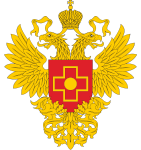
This article is an open access article distributed under the terms and conditions of the Creative Commons Attribution license (CC BY).
ORIGINAL RESEARCH
Transcription factors in human skeletal muscle associated with single and regular strength exercises
1 Lopukhin Federal Research and Clinical Center of Physical-Chemical Medicine of the Federal Medical Biological Agency, Moscow, Russia
2 Institute for Biomedical Problems of the Russian Academy of Sciences, Moscow, Russia
Correspondence should be addressed: Egor M. Lednev
Khoroshevskoe shosse, 76A, Moscow, 123007, Russia moc.liamg@zuahdel
Funding: the study was supported financially by the Russian Science Foundation, Agreement № 21-15-00362 "Investigation of molecular genetic mechanisms of morphofunctional changes in human muscle fibers during high-intensity physical loads".
Author contribution: Lednev EM, Vepkhvadze TF — study design and conduct, muscle sampling; Makhnovskii PA, Sultanov RI and Kanygina AV — bioinformatic data analysis; Zhelankin AV, Lednev EM — laboratory research; Generozov EV, Popov DV — study design and conduct, data processing, article authoring.
Compliance with ethical standards: the study was approved by the Ethics Committee of the Lopukhin Federal Research and Clinical Center Of Physical-Chemical Medicine (Minutes № 202/06/01 of June 01, 2021). All participants signed the voluntary informed consent form.
Skeletal muscle plasticity is the ability to change morphofunctional properties in response to changes in contractile activity. Strength training increases the size of muscle fibers and maximum strength with the activation of protein synthesis. Regulation of these changes at the gene level has not been investigated properly. This study aimed to identify transcription factors associated with changes in the transcriptome of the human skeletal muscle in the context of single and regular strength exercises. We assessed changes in the transcriptomic profile of m. vastus lateralis of 10 young men (mean age 23 (20.8 - 25.9) years) before and after 12-week leg extensor muscles strength training course, as well as before, 8 and 24 hours after a single exercise. Transcriptomic profiling involved RNA sequencing, search for binding motifs and the associated transcription factors. Bioinformatic methods of statistics, FastQC, GraphPad Prizm 8, DAVID, R enabled analysis of the data acquired. The strength training course resulted in the enrichment of the functional groups of genes "secreted proteins", "extracellular matrix" and "basal membrane" (p < 0.05). Transcriptomic responses and the associated transcription factors differed 8 and 24 hours after a single session as well as after regular training sessions. Transcription factors involved in adjustment to regular and one-time loads participate in myogenesis, angiogenesis, regulation of fiber phenotype, proteostasis and other processes. Thus, regulation of gene expression during adjustment to the resistance training loads is a complex process that involves many transcription factors with different functions. Investigation of the role played by these factors in the context of adjustment to exercising is a potentially rewarding task.
Keywords: hypertrophy, gene expression, strength training, muscle plasticity, muscle fibers